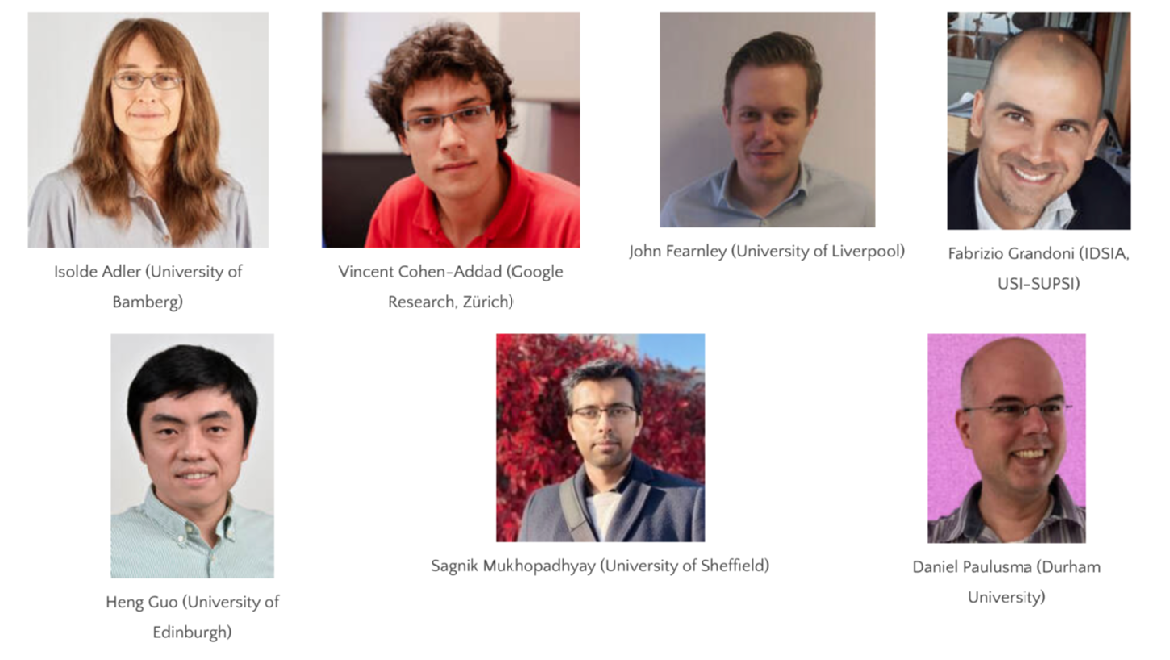Computer Science News
DIMAP Theory Day 2022
On December 12, 2022, we held the DIMAP Theory Day 2022. This event highlighted recent, exciting advances in the field of Algorithms and Complexity and provided means to facilitate interactions within the algorithms research community in the UK. The event was supported by the Centre for Discrete Mathematics and its Applications (DIMAP) and UKRI. We plan to hold further events in this series on a regular basis.
See more details at the DIMAP Theory Day 2022 page

Workshop on Algebraic Complexity Theory (WACT)
The University of Warwick will be hosting the Seventh Workshop on Algebraic Complexity Theory (WACT) from March 27 to March 31, 2023.
https://www.dcs.warwick.ac.uk/~u2270030/wactLink opens in a new window
Algebraic Complexity Theory is a vibrant field that has been seeing a tremendous amount of activity in the recent years. Its classical questions have been interwoven with deep questions from algebraic geometry, invariant theory, and representation theory. Researchers study a wide range of interlinked topics: arithmetic circuit lower bounds, algorithmic algebra, algorithmic invariant theory, geometric complexity theory, tensor rank, polynomial identity testing, and polynomial reconstruction, to name a few. The workshop brings together experts from different parts of this rich field to discuss the current state of the art, discover new connections, and set the directions for the future.
Warwick Quantum papers accepted to the top quantum conference QIP
Two papers by members of Warwick Quantum were accepted to QIP 2023, the most prestigious conference in Quantum Computing and Quantum Information.
These works provide a methodology for boosting the power of quantum algorithms using deep mathematical tools from additive combinatorics, as well as provide the techniques, tools, and abstractions necessary to answer when classical zero-knowledge protocols remain secure against quantum attacks.
- "Quantum Worst-Case to Average-Case Reductions for All Linear Problems" by Vahid R. Asadi, Alexander Golovnev, Tom Gur, Igor Shinkar, and Sathyawageeswar Subramanian.
- "Post-Quantum Zero Knowledge, Revisited" by Alex Lombardi, Fermi Ma and Nicholas Spooner.
Dr Igor Oliveira awarded an ERC Starting Grant
The European Research Council (ERC) has announced that Dr Igor OliveiraLink opens in a new window is among the winners of its prestigious Starting Grant competition. According to the European Research Council: "The funding is worth in total €636 million and is part of the Horizon Europe programme. It will help excellent younger scientists, who have 2 to 7 years’ experience after their PhDs, to launch their own projects, form their teams and pursue their most promising ideas."
Igor OliveiraLink opens in a new window has been awarded a €1.5M ERC Starting grant for a 5-year project entitled "Synergies Between Complexity and Learning". The project aims to exchange ideas and techniques between Complexity Theory and Learning Theory to accelerate progress in both fields, broaden the arsenal of tools available to attack their open problems, as well as to obtain a deeper understanding of the nature of efficient computation and of its logical aspects.
Two projects in Computer Science and Informatics (PE6 panel) in the United Kingdom were awarded ERC Starting Grants in the 2022 round. The press releaseLink opens in a new window contains more information about the ERC funding programme.
Christian Ikenmeyer joins the Department of Computer Science and the Warwick Mathematics Institute as a Professor
We are happy to announce that Prof Christian Ikenmeyer joined the Department of Computer Science and the Warwick Mathematics Institute on October 1st 2022. In his research, he combines ideas and challenges from theoretical computer science, algorithmic algebra, algebraic complexity theory, algebraic geometry, representation theory, and algebraic combinatorics. We welcome him to the department!
Best Paper Award at SODA 2023
We are delighted to announce that the paper "Dynamic Matching with Better-than-2 Approximation in Polylogarithmic Update Time", coauthored by Sayan Bhattacharya and Peter Kiss from the Theory and Foundations Research Division at Warwick, along with Thatchaphol Saranurak (University of Michigan) and David Wajc (Stanford University), has received the best paper award at SODA 2023.
Computing a maximum matching in a graph is a fundamental problem in combinatorial optimisation. The paper considers this problem in a dynamic graph, which keeps changing over time via a sequence of edge insertions and deletions. It was a decade-old open question to decide whether one can beat the performance guarantee of the simple greedy algorithm for this problem (which gives 2 approximation), in a dynamic setting. The paper answers this question in the affirmative, and provides the first efficient dynamic algorithm which can maintain a better-than 2 approximation to the size of the maximum matching in the input graph.
Ian Mertz joins the department as a Research Fellow
Ian Mertz completed his PhD at the University of Toronto in 2022 under the supervision of Toniann Pitassi, with stints at the Simons Institute for the Theory of Computing (UC Berkeley) and at the Institute for Advanced Study in Princeton.
Ian's primary research area is computational complexity theory. His interests at the moment include catalytic computing, lifting theorems, arithmetic circuit complexity, and proof complexity.
